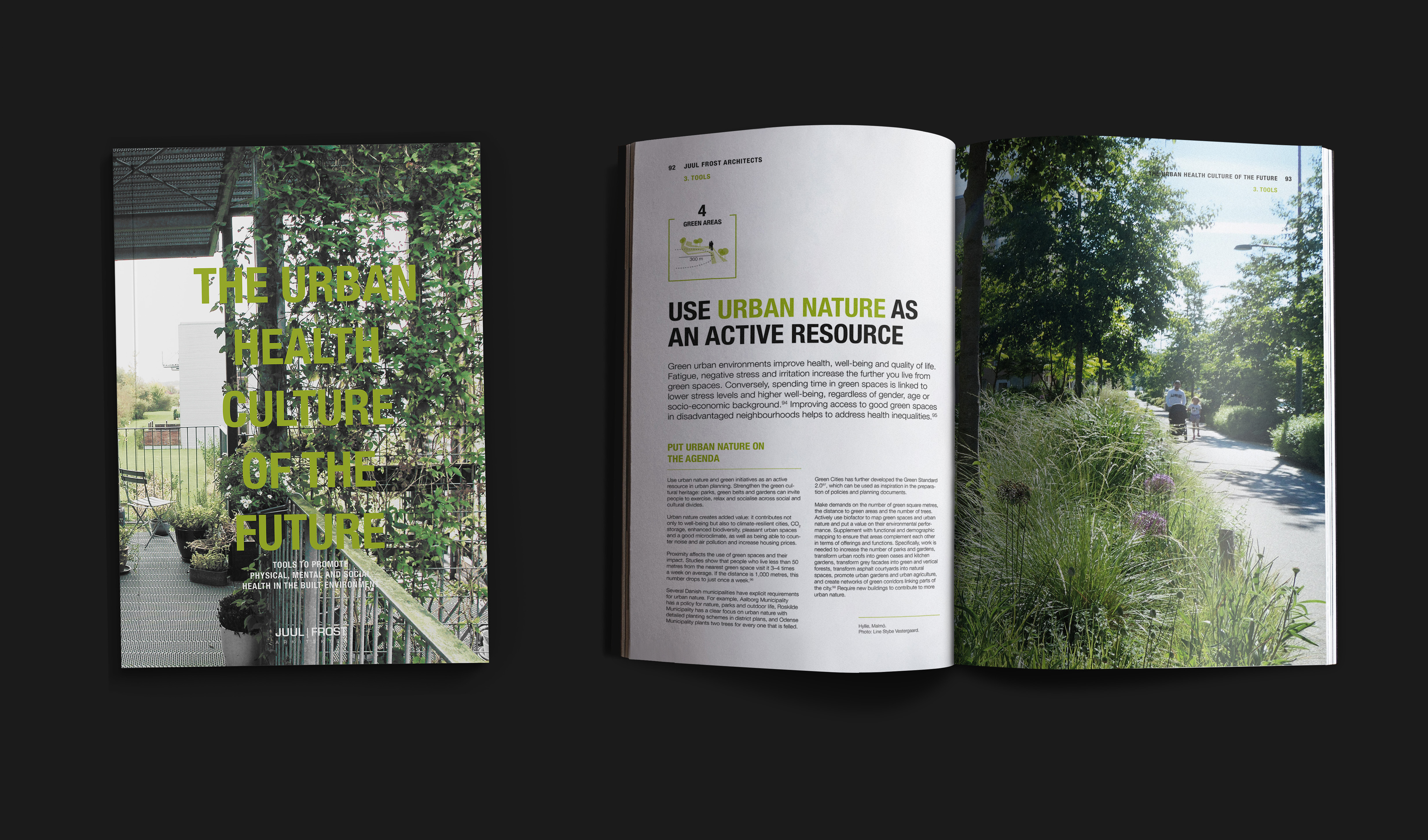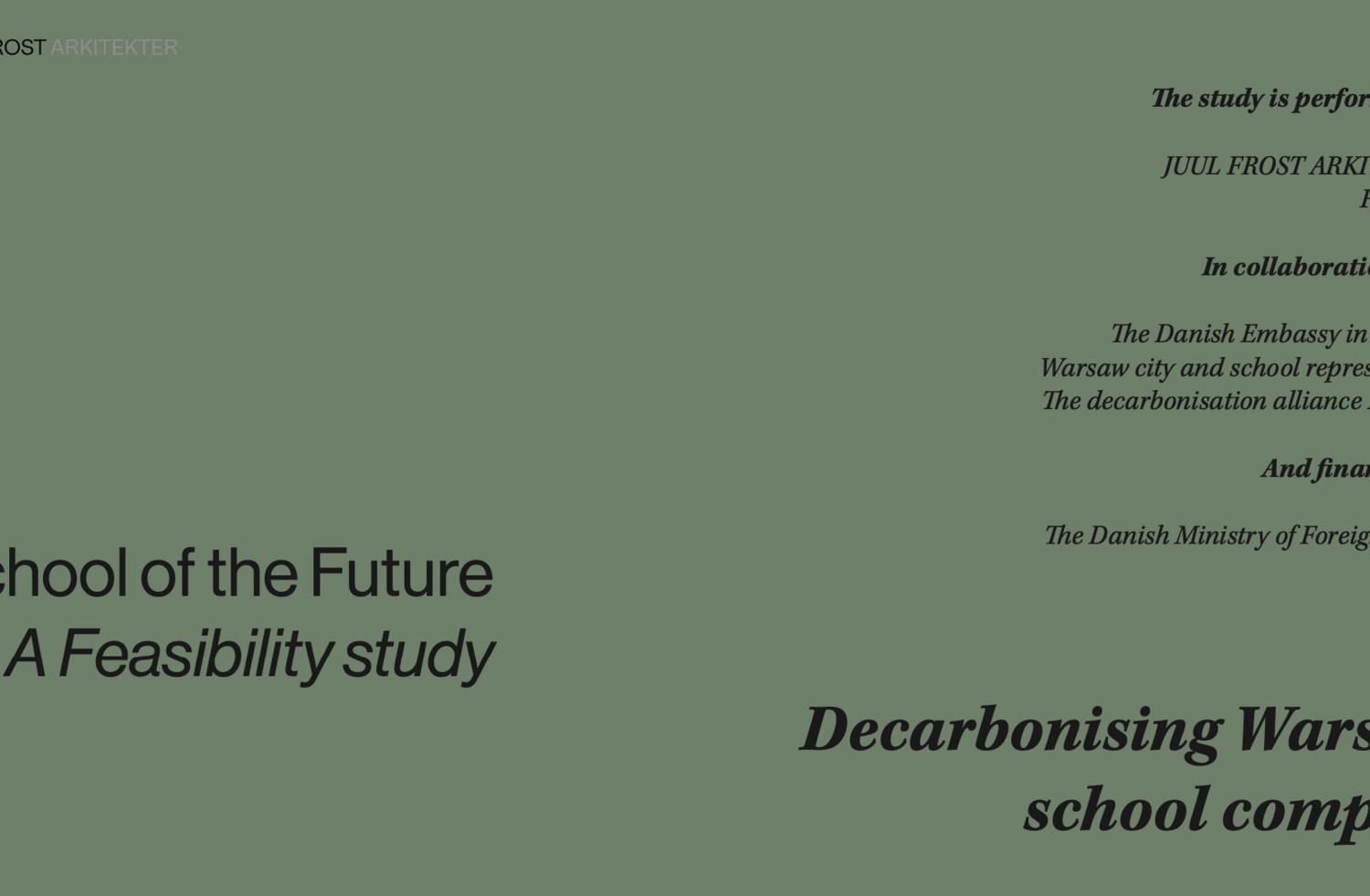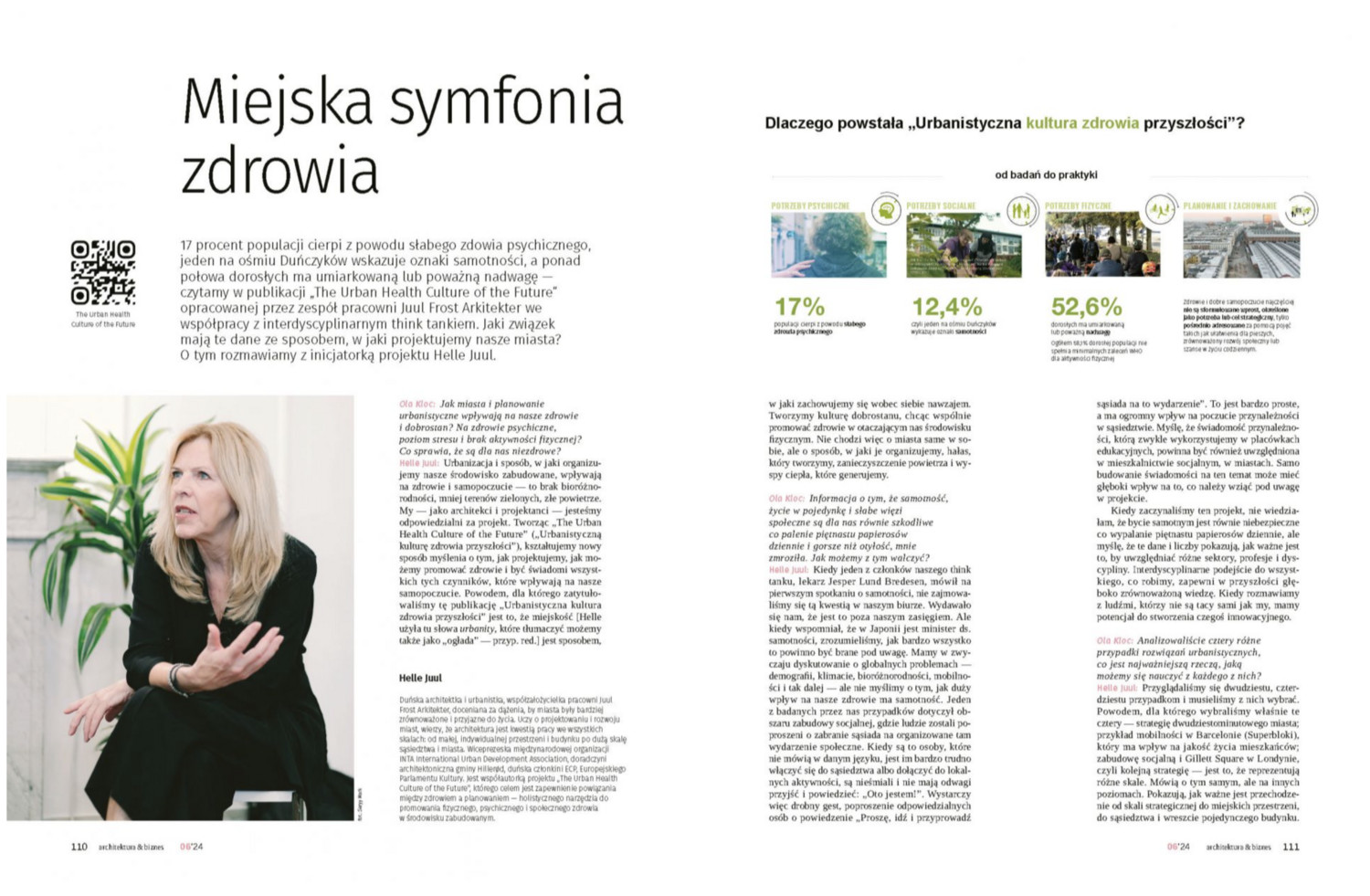THE URBAN HEALTH CULTURE OF THE FUTURE

The aim of the development project ‘The urban health culture of the future’ is to ensure the link between health and planning.
Since 2019, Juul Frost Architects has worked with the development project ‘The urban health culture of the future’. The project is supported by Realdania and is aimed at everyone who works with urban development, both public and private developers and consultants.
‘The urban health culture of the future’ has been developed with contributions from a think tank with experts in relevant, interdisciplinary fields and two municipalities.
The project has resulted in a publication with:
- cases across strategic urban development and urban spaces that provide inspiration for working with social, mental and physical well-being
- urban theories for inspiration
- the think tank thinks, with contributions from the think tank and their different professional perspectives on health and well-being in planning;
- and tools to work holistically with equality in health and quality of life, social neighbourhoods, green areas, active living and integration of research

